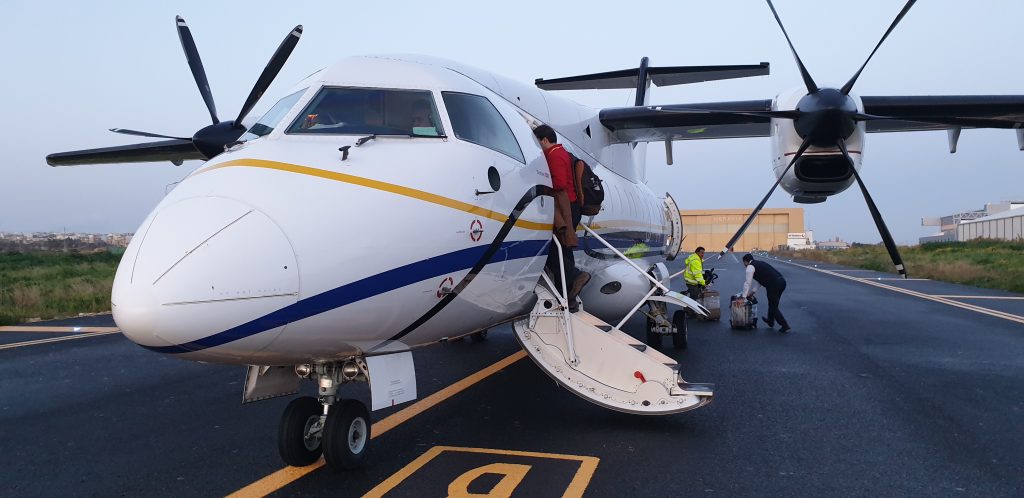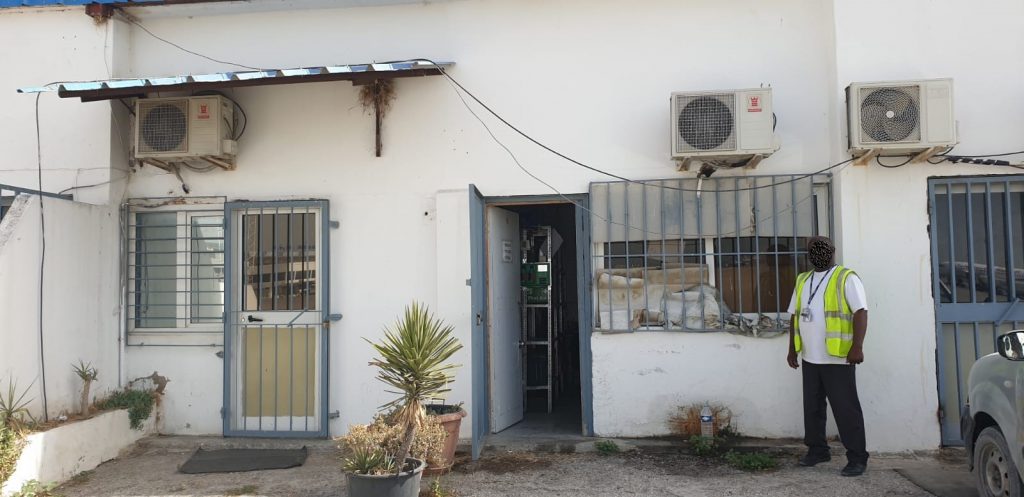First of all, here’s a little about me: my name is Gabriel Felice, I was born and bred in Malta, a tiny island in the middle of the Mediterranean Sea. I graduated from Cranfield University with an MSc in Air Transport Management and I am a major aviation geek (yes, you guessed it, my favourite movie is Top Gun).
I started my aviation career as an apprentice aircraft maintenance technician with our local airline, Air Malta. I worked line maintenance – shift work for 6 years, providing TLC for Air Malta’s fleet of A319 and A320s. I have massive respect for the guys and girls braving the elements to ensure that all those birds get their loads to their destination safely.
Today, one of my responsibilities is to audit line stations against ‘Part-145’ EU regulations for a local company (‘Part-145’ is basically what the European Union call aircraft maintenance organisations).
Organisations may perform maintenance away from their main base provided that those stations are compliant with ‘Part-145’ regulations. To date, I have audited line stations in Malta, Tunis, Libya and Ghana. Now, auditing a line station in Europe is one thing, however, auditing line stations in developing nations is a completely different ball game.
This brings me nicely to the topic of this article, Part-145 line stations in remote, developing nations. Just to paint you a picture, my first experience auditing a remote line station was in Mitiga, Libya in February 2018. My colleague and I were tasked with re-evaluating the line station to ensure it was still operating at the required standard.
Months prior to the audit there were several reports of civil unrest. Days before our departure, the safety manager who was responsible for us was not too happy we were still going on the mission but we all knew how important it was to have the station running.
At 0700Z on 13th February 2018, my colleague and I boarded the direct, 45 minute flight from Malta to Mitiga.
Considering the unfortunate situation Libya was in, the line station was in pretty good shape. The team there gave the impression that they were really motivated and spirits were high. Apart from a couple of bullet holes in the main office and a far-from-ideal lavatory situation, the rest of the facility looked good.
During the closing meeting at around 1400Z – an hour before the aircraft was due in Mitiga to take us back to Malta, we heard a massive explosion. A rocket was shot into the airport and flight home was diverted to Misrata, 200 kilometres away. Its safe to say, our safety manager was tearing his hair out (the little he had left)! So much for the closing meeting. We had to get ourselves to Misrata!

The day before our departure to Mitiga we had a briefing from our safety manager. He had a ‘plan’ to get us out of Mitiga if the situation went south. He had never initiated this plan on a real-life scenario so, effectively, we were his guinea pigs.
Back to the story – Out of no where a large, clean shaven Libyan approached us and demanded we follow him. He lead us to a black, sparkling new VW Passat and sure enough, 3 hours later we were on our way back to Malta.
That adventure was a massive eye-opener for me: Take nothing for granted and really dedicate the time to understand and prepare for the every part of your mission. For example, take the facilities available during post-war Mitiga, you can’t expect to find sparkling clean tool racks, top of the range air conditioning and speedy, uninterrupted internet connection. External circumstances, beyond the control of anyone within the company, play a real role in the daily operations of the station. Don’t get me wrong, you can still demand excellence – the line station should operate according to regulations, personnel must be trained, tools and parts should be controlled, maintenance data should be up to date, etc..
As an auditor, one must understand the situational circumstances of the mission and try to use the regulations to make the operation run smoother. Listen to the auditees to, for example, understand were you can raise a finding to ensure they get the help they need. Sometimes, the men and women who dedicate their time (and lives) to these line stations are completely alone.
Although ‘just’ a line station, peoples lives are still affected. From the people manning the station, support staff such as auditors, aircraft handlers and the passengers flying on the aircraft. You can’t control external forces but you can try and prepare for when things do not go as planned.




